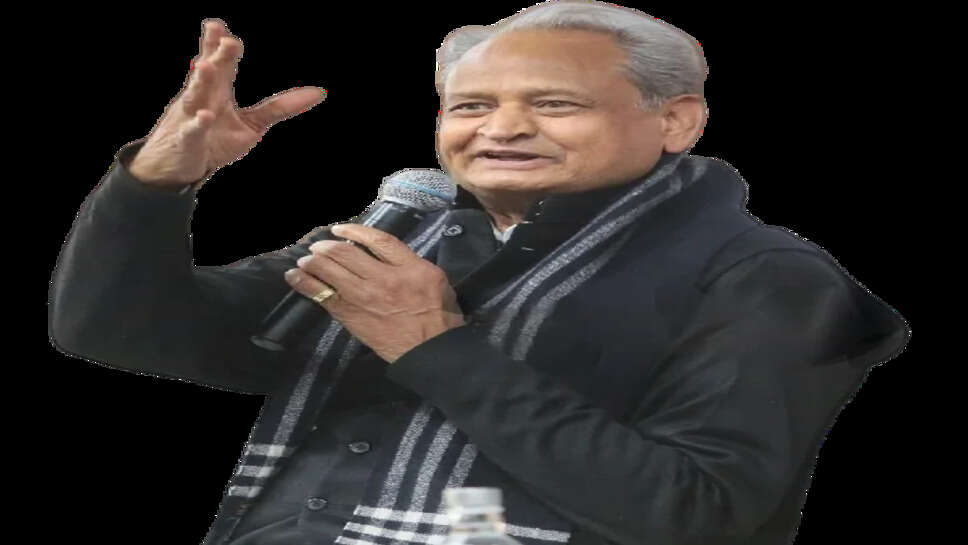Ashok Gehlot Returns Sachin Pilot’s Overture

In a significant and emotional political statement that has caught the attention of Rajasthan and national political observers alike, Chief Minister Ashok Gehlot recently responded warmly to an overture made by fellow Congress leader and former Deputy CM Sachin Pilot. The two leaders, whose long-standing rivalry has defined Rajasthan Congress politics for years, seem to be publicly embracing reconciliation ahead of the next crucial phase for the Indian National Congress in the state.
Speaking at a public event, Gehlot said, “We were never apart. Love has always been there.” This line, subtle in its diplomacy yet powerful in its implications, has become the latest chapter in the complex relationship between the two Congress heavyweights. It signals not just political alignment but a deeper effort to project unity in a party that has suffered internal divisions and public spats in recent years.
Background of the Gehlot-Pilot Rift
The conflict between Ashok Gehlot and Sachin Pilot is one of the most widely discussed internal feuds within the Congress party. It dates back to 2018, when the Congress returned to power in Rajasthan. While Pilot was widely seen as a youth icon and had served diligently as the state party president, the chief ministerial post was ultimately handed to Gehlot — a veteran leader with deep roots and widespread support within the party high command.
Pilot accepted the role of Deputy CM and also held important portfolios, but tensions soon escalated. Pilot’s frustration over being sidelined became public in 2020 when he staged a political rebellion along with a group of MLAs loyal to him. The episode nearly toppled the Congress government in the state.
After weeks of high drama, mediation by central Congress leaders including Rahul Gandhi and Priyanka Gandhi Vadra helped Pilot return to the party fold, but the trust deficit remained. The Congress leadership, keen on maintaining a united front, has since worked to bridge the gap between the two leaders.
Recent Signals of Reconciliation
Sachin Pilot recently made comments that hinted at a softened stance, emphasizing the importance of working together and prioritizing the party’s interests over personal ambitions. His statement, seen by many as a political olive branch, was closely watched in Rajasthan and Delhi.
Gehlot’s warm and poetic response — “we were never apart, love has always been there” — is being viewed as both a public gesture of goodwill and a strategic move to present a united Congress in the face of upcoming political battles, especially after the Lok Sabha elections and in preparation for future state elections.
Observers believe that this public display of unity could be crucial in countering the BJP’s influence in the state and projecting a stable image to the electorate.
Political Significance
The Gehlot-Pilot rivalry has long been a source of concern for the Congress high command. Their feud not only weakened the party’s image but also posed a serious threat to governance in Rajasthan. By reconciling publicly, the duo sends out a strong message of party discipline, maturity, and responsibility.
Key political implications of this reconciliation include:
-
Strengthened Party Morale: Congress workers at the grassroots level, who were often divided into Gehlot and Pilot camps, now have a reason to unite.
-
Clear Message to BJP: With internal conflicts appearing resolved, the Congress can now mount a more focused challenge against the BJP, both at the state and national levels.
-
2028 Rajasthan Elections in Sight: Though the next state elections are a few years away, early reconciliation could help build long-term strategies and avoid last-minute firefighting.
Personal Bond or Political Compromise?
The warm tone of Gehlot’s statement raises a key question: is this a genuine personal reconciliation or a politically motivated compromise?
In the high-stakes game of politics, the answer may lie somewhere in between. While past wounds may not have fully healed, both leaders understand the importance of working together — at least in public — for the greater interest of the party. Political maturity often requires setting aside egos, and that seems to be the current message both are trying to send.
It’s also worth noting that both leaders have their eyes on the future. Gehlot, a seasoned politician, may be aiming to secure his legacy, while Pilot, seen as the younger face of the party, likely wants to remain relevant and eventually take over leadership in Rajasthan. A truce benefits both.
Congress High Command’s Role
The Congress leadership in Delhi has been instrumental in orchestrating this thaw. Rahul Gandhi and Priyanka Gandhi have personally intervened multiple times in the past to resolve the tensions. Their continued efforts at mediation, coupled with the need to prevent further electoral losses, may have led to a strategic realignment.
The party’s central leadership is likely to build on this new-found unity by involving both leaders in national campaigns, allowing them to present a joint front and share stage space at events.
Public and Political Reactions
Public reaction to this gesture has been mixed. Loyal Congress supporters and workers have welcomed the truce, believing it will help the party focus on real issues like development, governance, and public welfare.
However, skeptics, including some opposition voices, have dismissed the reconciliation as superficial, pointing out that such statements have been made in the past, only for tensions to resurface later.
Political analysts, meanwhile, are watching cautiously. Some suggest this is merely a temporary political arrangement and that underlying power struggles may still persist. Others are hopeful that the leaders have truly turned a new page in Rajasthan’s political history.
What Lies Ahead?
If this reconciliation is sustained, it could lead to a new phase in Rajasthan’s governance, marked by:
-
Collaborative Decision-Making: The involvement of both leaders in key policy matters could strengthen governance.
-
Youth and Experience: The combination of Gehlot’s administrative experience and Pilot’s youthful energy can create a balanced leadership dynamic.
-
Development-Oriented Focus: A united leadership can now focus more on public welfare schemes, economic development, and rural outreach.
But to achieve this, both leaders will need to move beyond symbolic gestures and work together consistently. Trust-building, delegation of responsibilities, and avoiding factionalism will be key to sustaining this political peace.
Ashok Gehlot’s emotional overture — “We were never apart, love has always been there” — may well be a defining moment in the evolving saga of Rajasthan Congress politics. Whether it stems from genuine affection or political necessity, it reflects a willingness to move past personal grievances for the sake of party unity and public service.
As the Congress charts its path forward, especially in a politically polarized India, such reconciliations may serve as models for intra-party cohesion. Only time will tell if this political truce will hold, but for now, it offers hope — not just for the Congress, but for the voters of Rajasthan who want stability, governance, and development over political drama.
